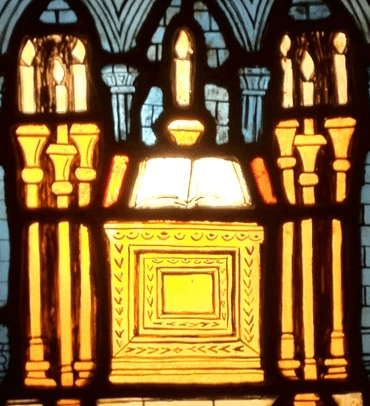Holy

The Bible describes many things as being holy, or sacred. The Ark of the Covenant is one very holy object. The inmost chamber of the tabernacle is called the "Holy of Holies". Things that proceed from the Lord are holy. Objects are holy if they contain something, or represent something, from the Lord. For that reason, the names of the Lord in human languages are holy because they represent qualities of the Lord, things that are Him. The Bible is holy because it contains, interiorly, the Lord's divine truth. The tabernacle of Israel was holy -- not because of the wood or gold or dyed cloth -- but because those things represented qualities that the Lord has. Those same qualities exist, as in an image, in the spiritual states of people who follow the Lord's laws. No person is holy, but if a person's mind contains truth from the Lord and his or her will comes to love the truths and the actions that these truths suggest to him, then his or her mind will contain holy things, because those truths and loves come from the Lord. These things become that person's life and they remain with that person in heaven, after death.
(Odkazy: Arcana Coelestia 3997, 4091, 8302)
Arcana Coelestia # 4091
4091. 'Where you made a vow to Me' means that which is holy. This is clear from the meaning of 'making a vow' as wishing the Lord to provide, and in the highest sense, which has reference to the Lord, as the fact that He does provide, dealt with in 3732. And since whatever the Lord provides proceeds from Him, and whatever proceeds from Him is holy, 'making a vow' at this point therefore means that which is holy. The fact that 'making a vow' means that which proceeds from the Lord, and therefore that which is holy, at first glance seems to be rather remote. But this is because it is man who makes the vow by which he binds himself to something, that is, imposes something on himself that has to do with the Divine, if he is to get what he wants. But when it is the Divine itself or the Lord to which this phrase has reference, it is not any vow at all that is meant, but willing and providing, that is, doing. That which the Divine or the Lord does therefore proceeds from Himself; and whatever proceeds from Himself is holy.






